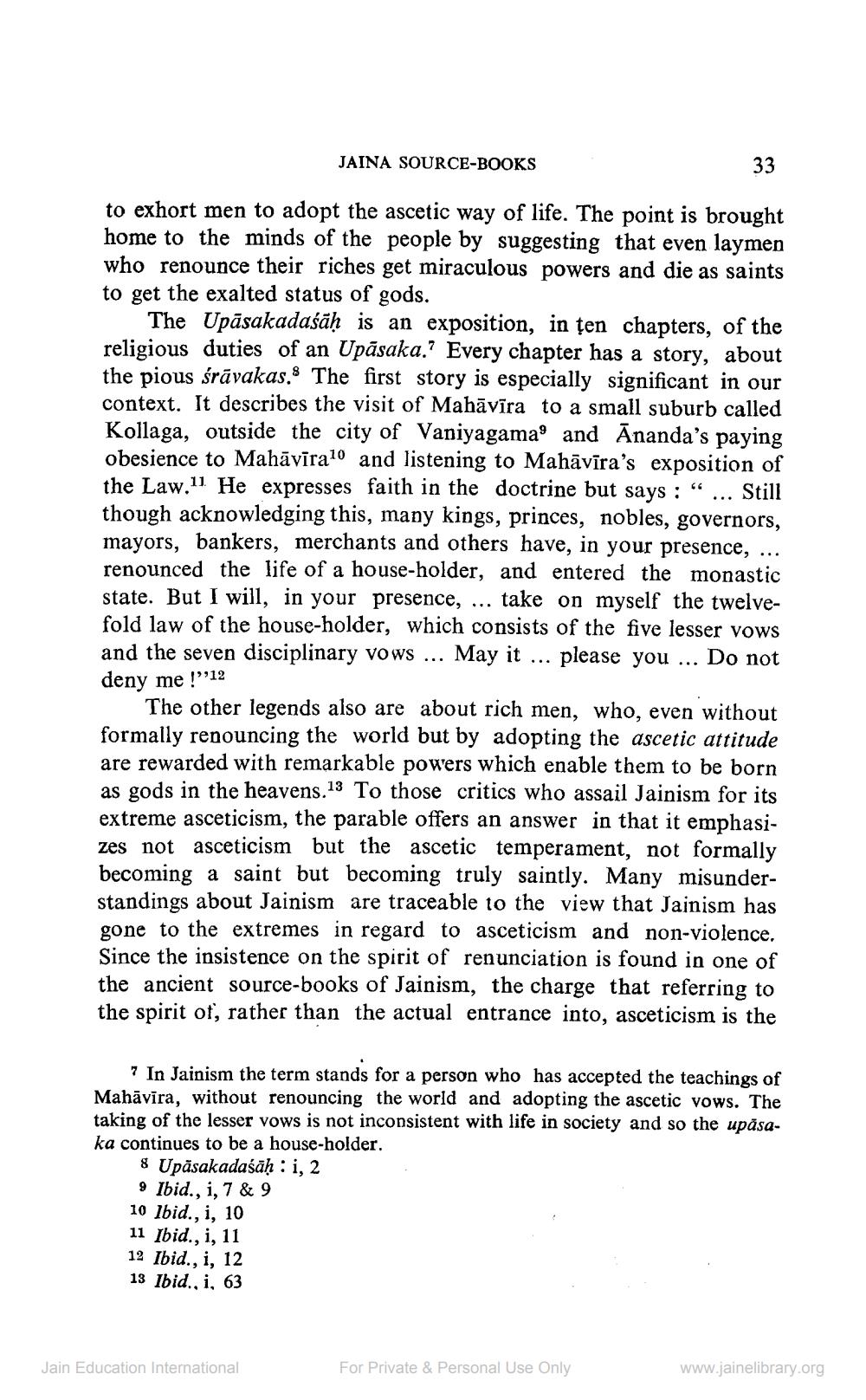________________
JAINA SOURCE-BOOKS
to exhort men to adopt the ascetic way of life. The point is brought home to the minds of the people by suggesting that even laymen who renounce their riches get miraculous powers and die as saints to get the exalted status of gods.
8
The Upāsakadaśaḥ is an exposition, in ten chapters, of the religious duties of an Upasaka." Every chapter has a story, about the pious śrāvakas. The first story is especially significant in our context. It describes the visit of Mahāvīra to a small suburb called Kollaga, outside the city of Vaniyagama and Ananda's paying obesience to Mahāvīra10 and listening to Mahāvīra's exposition of the Law. He expresses faith in the doctrine but 66 says: Still though acknowledging this, many kings, princes, nobles, governors, mayors, bankers, merchants and others have, in your presence, renounced the life of a house-holder, and entered the monastic state. But I will, in your presence, take on myself the twelvefold law of the house-holder, which consists of the five lesser vows and the seven disciplinary vows ... May it please you. Do not deny me!"'12
8 Upäsakadaśāḥ: i, 2
9 Ibid., i, 7 & 9
10 lbid., i, 10
11 Ibid., i, 11
12 Ibid., i, 12
13 Ibid., i, 63
...
Jain Education International
...
The other legends also are about rich men, who, even without formally renouncing the world but by adopting the ascetic attitude are rewarded with remarkable powers which enable them to be born as gods in the heavens.13 To those critics who assail Jainism for its extreme asceticism, the parable offers an answer in that it emphasizes not asceticism but the ascetic temperament, not formally becoming a saint but becoming truly saintly. Many misunderstandings about Jainism are traceable to the view that Jainism has gone to the extremes in regard to asceticism and non-violence. Since the insistence on the spirit of renunciation is found in one of the ancient source-books of Jainism, the charge that referring to the spirit of, rather than the actual entrance into, asceticism is the
33
7 In Jainism the term stands for a person who has accepted the teachings of Mahāvīra, without renouncing the world and adopting the ascetic vows. The taking of the lesser vows is not inconsistent with life in society and so the upāsaka continues to be a house-holder.
For Private & Personal Use Only
www.jainelibrary.org




